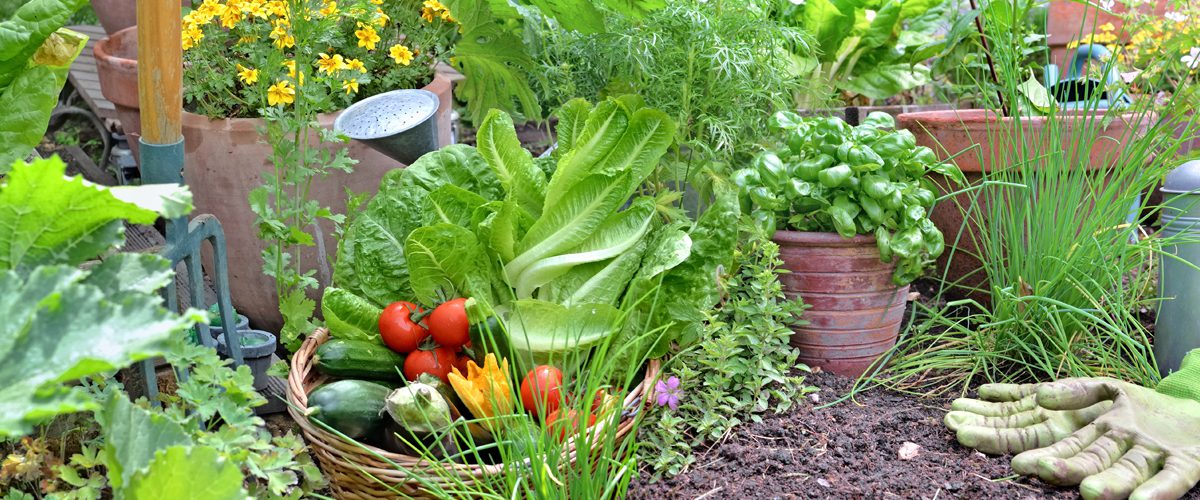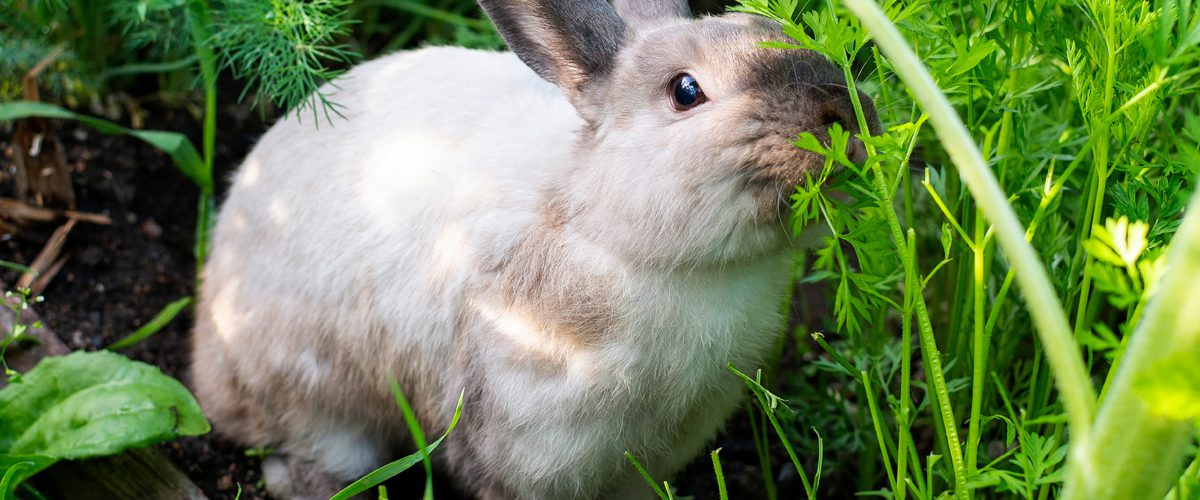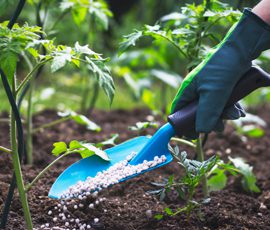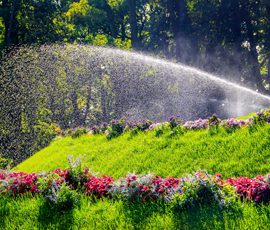
If you are growing your own garden, then you want to make sure you do everything you can to ensure that you are getting the biggest harvest possible. There are a few things you can do to keep your plants growing and producing as much as they can. Have a look at this list of great irrigation tips to make sure you get a bountiful harvest this year.
Find your light
Sun is one of the most important things for your plants, but you need to make sure you are giving the plants in your garden the right amount of sun. Many plants don’t do well if they get too much or too little sun, so you need to position your garden in a place where it will receive shade for part of the day. You should also plan your garden so that some of your taller plants (like sunflowers or corn) will provide the other ones with extra shade.
Your irrigation system should be timed to work with the sun so that you aren’t watering too much when the sun is at its hottest. If you must do a watering in the middle of the day, look for a system that is more drip irrigation based so that you won’t need to worry about burning your leaves.
Choose the right base
The soil you choose can be a very important factor when it comes to getting your veggie garden to grow big and healthy. You want to make sure that the soil is healthy and full of good nutrients that will help your plants grow and flourish. Regular soil is great, but adding some organic matter (such as dried leaves, shredded bark, or organic compost) will help it retain water from your irrigation system, provide nutrients, and allow the roots to spread easily.
The soil should be a good consistency, and you want it to be thick enough to clump together when you squeeze it but loose enough to spread easily if you sprinkle it around. The soil will also have a slightly different smell if it’s healthy. If it smells like fresh rain, then you know your soil is full of healthy stuff.
Give it some extra help
Getting great soil is very important, but you can do a bit extra if you want everything to grow as big as possible. Adding some good fertilizer that is suitable for vegetable gardens is a fantastic way to give your plants a bit of a boost. Fertilizer is usually made up of a combination of phosphorus, nitrogen, and potassium and different fertilizers have different ratios plus extra additives like weed killer to help your plants out.
The type of fertilizer you use should be based on the plants that you are choosing to grow, which means you might have to mix and match. For example, fertilizers with high nitrogen contents are ideal for leafy greens like kale or spinach, but they add too much nitrogen for more sensitive plants like tomatoes. You might need to place different plants in different areas depending on what fertilizers you are choosing.
Another great thing about irrigation systems is the ability to apply fertilizer without worrying about using a spreader. Liquid fertilizer is available from many garden centres and hardware stores, and You can usually apply it right into your irrigation system. An irrigation system will make it quick and easy to give your vegetables the proper nutrition in an efficient way.
Watch for visitors
One thing that can be hard to overcome when you’re dealing with nature is…well, nature! Pests like bugs and animals can sneak into your garden and destroy your hard-earned crops in the blink of an eye. Animals can also damage your irrigation system sprinklers if they end up too deep into your garden.
Many people choose to plant their gardens with a fence surrounding them so that larger pests can’t get in and eat away at everything during the night hours. Other people choose to plant within a greenhouse to keep their plants safe while adding extra moisture to the soil. There are also planting techniques that use prickly plants as a natural fence to keep the animals out in a safe way.
When it comes to bugs, you might need to get yourself some pesticides to fend them off before they even make their home. Pesticides seem a little frightening, especially for things you are going to eat, but there are so many natural and organic ones on the market that do a great job. There are also plenty of fantastic recipes online to make your own natural pesticide from things you probably already own.

Protect the ground
We already talked about ensuring your soil is healthy and adding mulch is one of the best ways to keep it healthy while your plants grow. Mulch will hold in extra moisture from your irrigation system, which is perfect for areas that get quite a bit of sun. You never want the soil to dry out completely, and this allows you to water a bit less frequently than bare soil would.
Mulch is also important when it comes to regulating the temperature of the soil. If you have excessive heat, it could damage the roots in the soil and fry them completely. Mulch helps keep the soil at a consistent and even temperature, so it doesn’t get too hot or too cold.
Watch your watering
Sun, soil, and water are the three most important things a plant needs to grow, so it’s essential to maintain a healthy watering schedule. How often you water will depend on many different factors, including your climate, the plants you’re growing, and the soil quality. Some plants will require more water than others, and some also prefer to be watered at different times. If you’ve ever wondered “what is the best irrigation system for a vegetable garden” the answer is one that is custom-built for your yard.
One of the best ways to ensure your plants are getting the water they need is by installing an irrigation system that is designed specifically for your needs. These are the best way to control what areas are getting water and when without worrying about dragging out the hose by yourself. You can even mix and match so you can get a taller system that will spray your leaves and a drip irrigation system for your vegetable garden to help with the roots.
Do your research
If you want to make sure that your plants are going to grow and produce enough food for you to eat, then you need to do your research into what each one will need to thrive. The best way to do this is by planning out your garden in the off-season so you can be prepared before you even buy your first seed package.
Planning out your garden is the best way to ensure the plants will be getting exactly what they need, allowing you to plant the plants in the areas that are best for them. You will need to consider many factors like sun coverage, fertilizer type, and how much water that plant will need. Making a plan based on your irrigation system is the best way to ensure the plants will grow successfully and produce great food for you.
Check it out
You have to make sure you are keeping a close eye on your garden if you want to keep it safe and healthy. Check on it every day if you can so you can catch any problems before they get out of hand. Some plants are very good at growing with little to no interference, but others need a little bit of love and care to produce a good harvest for you.
Check for noticeable signs of damage from large animals, then check the plants individually to see if there are any issues with bugs. Check the leaves, stems, and anything the plant has produced to make sure the plant isn’t being eaten away by bugs. You can also use a soil testing kit to check the ph level of the soil to ensure that it is healthy, and you should make sure you check the moisture level of the soil while you’re at it. If your soil is too dry, try up the output from your sprinkler system, so the soil stays wet throughout the day.
You should also check your irrigation systems line for any sprinkler head issues or blockages. Simply turn it on and walk down the line to see if the pressure is good and make sure each sprinkler head is spraying evenly. It’s essential to find any problems quickly, so they don’t damage the system more over time.
Using irrigation systems in your vegetable garden is the best way to ensure your plants always get the water they need. This is one of the major factors in producing a bountiful harvest, and it’s much easier than watering your plants with a traditional hose. Talk to one of our trained irrigation specialists today, and they will help you find the best vegetable garden irrigation options for your yard.



